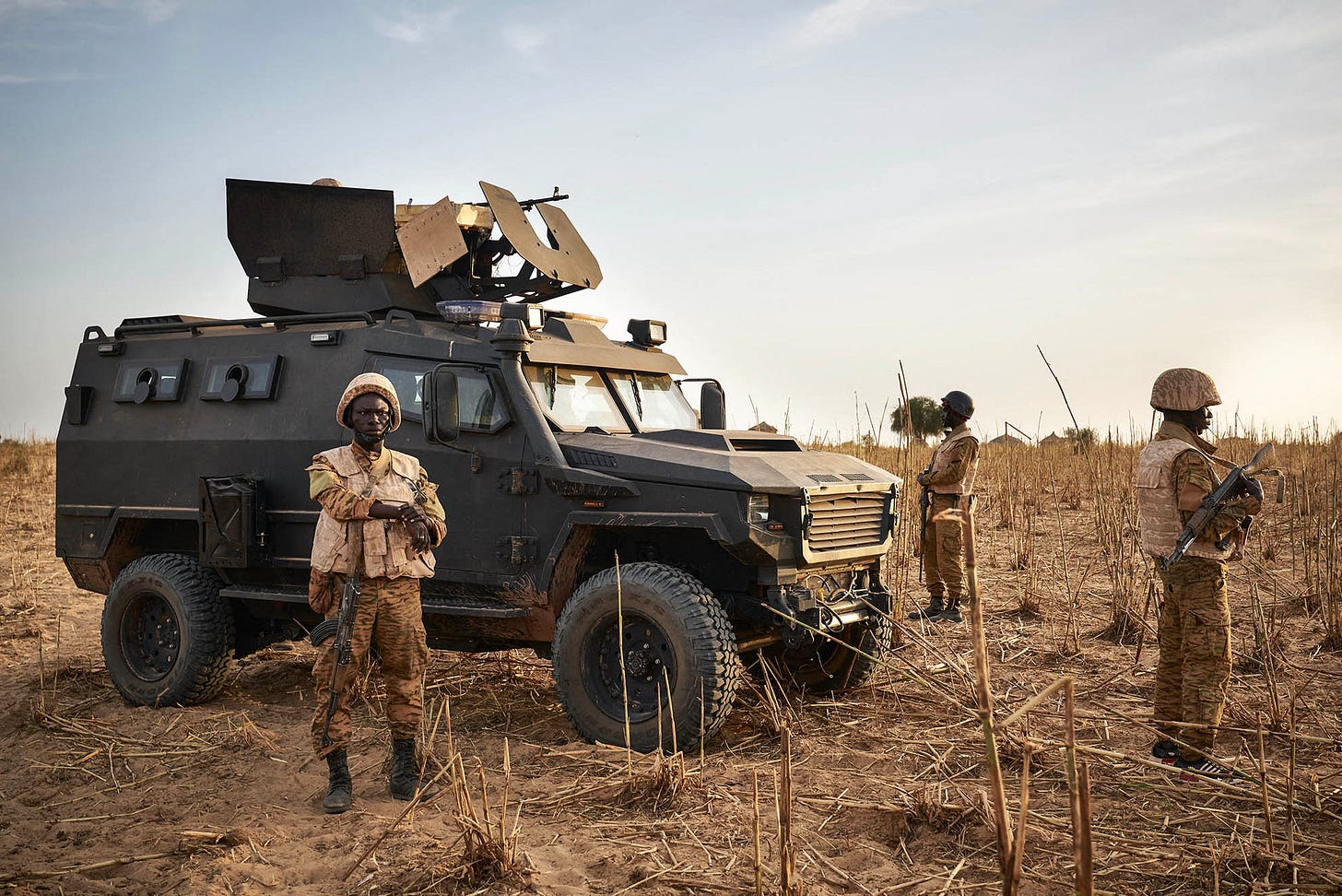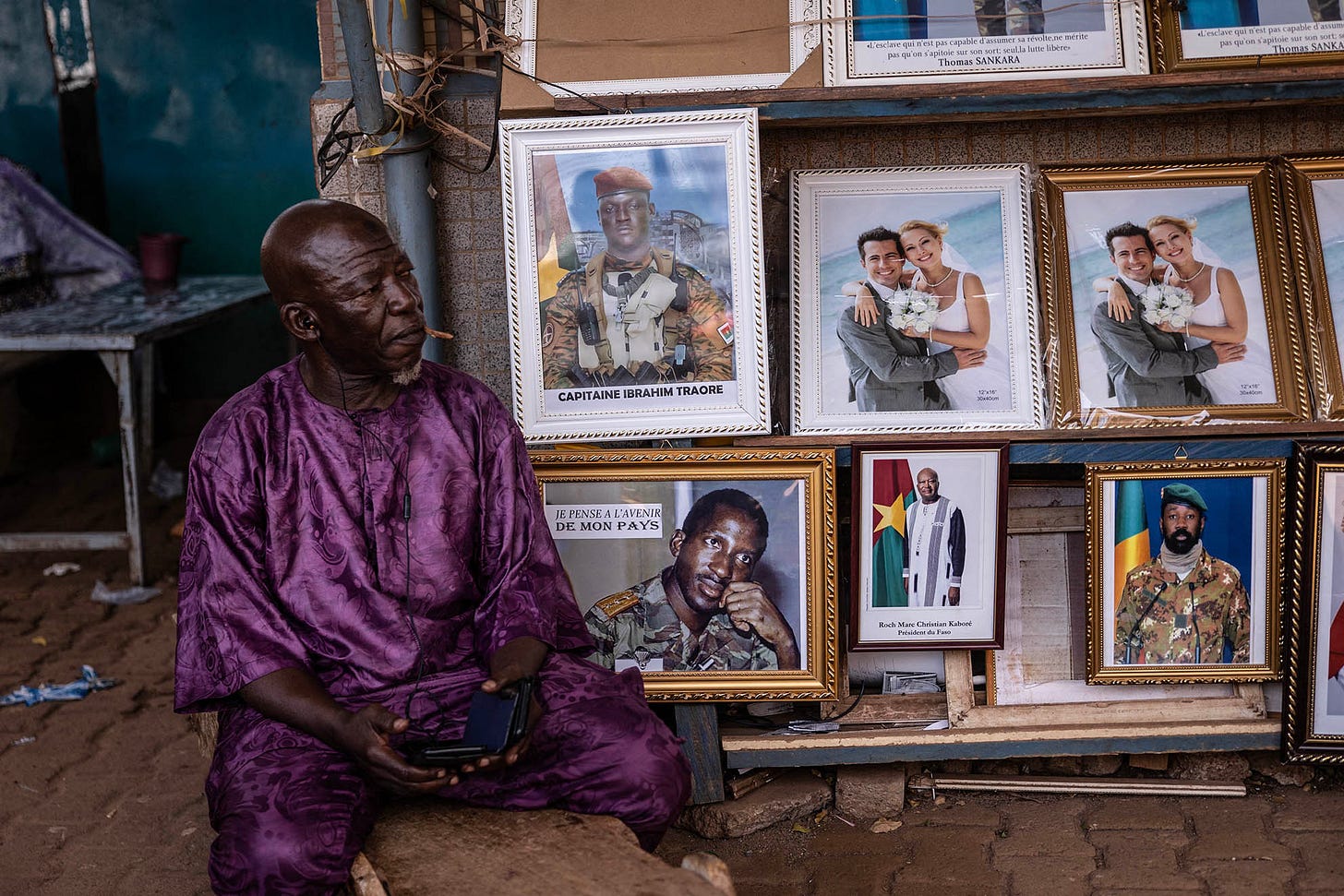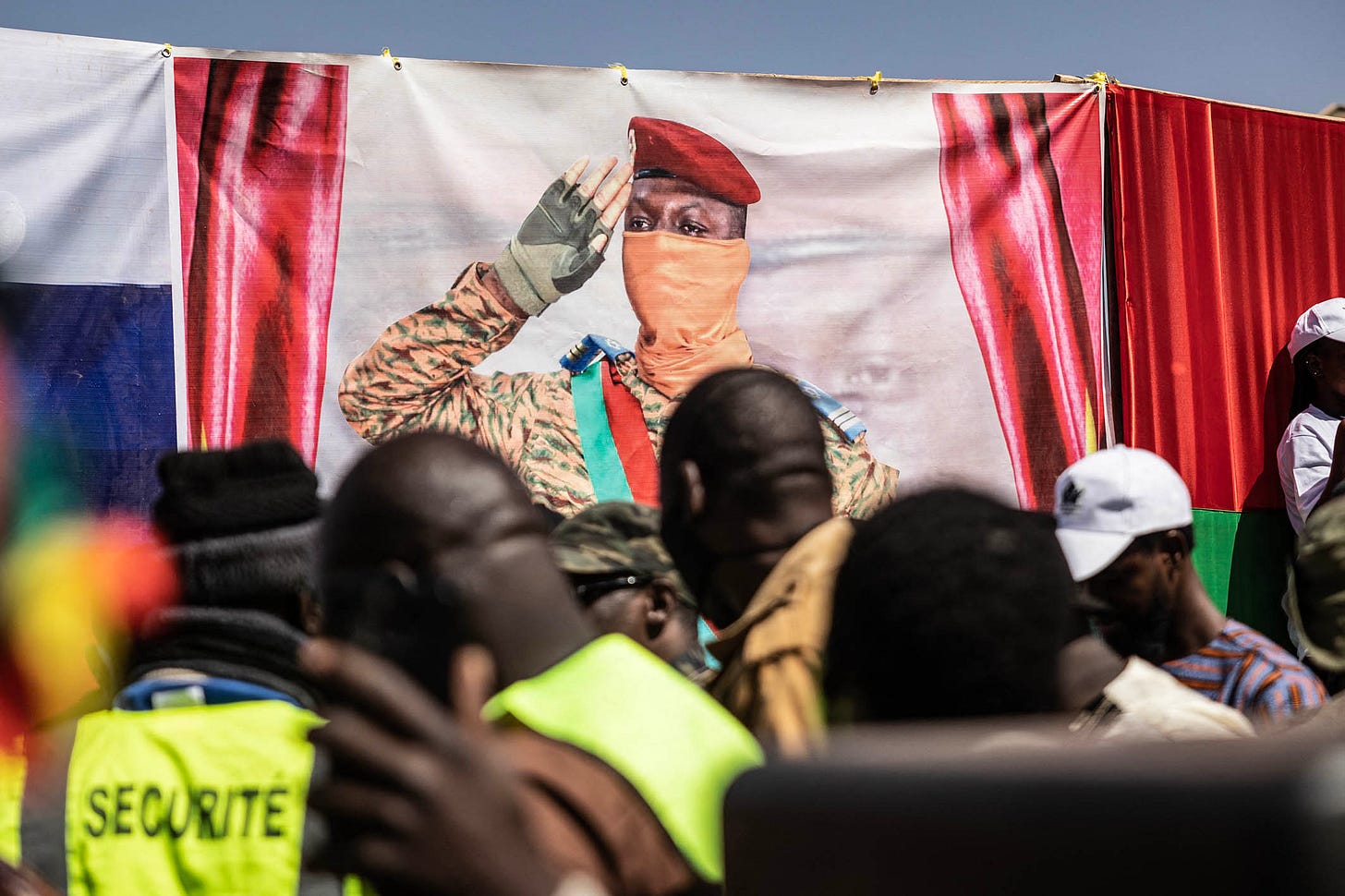Critics of Burkina Faso's junta keep ending up on the front lines
Joining the civilian militia was once a patriotic act. Now it’s also a punishment.
Pierre Wendpuire* in Ouagadougou

Boukaré Ouédraogo, civil society activist. Arouna Loure, anaesthetist. Zinaba Rasmné and Bassirou Badjo, activists. Issaka Lingani, journalist and political analyst. Yacouba Ladji Bama, journalist. Ablasse Ouédraogo, a 70-year-old ex-foreign minister.
What unites these disparate individuals is that each has publicly criticised the military government led by President Ibrahim Traoré, an army captain. Each was forcibly conscripted into a civilian militia group, and sent to the front lines of Burkina Faso’s fight with militants in its Sahelian north. This appears to be an attempt to silence the junta’s critics.
President Traoré became the continent’s youngest leader – he is now 36 – in September 2022, when he ousted another military government that had come to power in a coup in January that year. He promised to end nearly a decade of insecurity in just three months.
But insecurity has only worsened. Deaths caused by Islamist insurgent groups have tripled since before the coup, according to the Africa Centre for Strategic Studies. Questions about military rule efficacy are getting louder.
But the price for speaking up is steep. Dozens of critics have been sent to fight with the Volunteers for the Defence of the Fatherland (VDP), a state-sponsored vigilante force fighting alongside the armed forces. President Traoré has made this civilian militia a cornerstone of his security policy, and claims to have recruited nearly 90,000 people.
Complex community response
Vigilante groups – notably the Koglweogo, initially drawn from the Mossi community in Fada N’Gourma in the Est region – have been fighting on the front lines since 2015. Koglweogo first emerged after the 2014 uprising against longtime dictator Blaise Compaoré, which created security vacuums and divisions within the military.
While the Koglweogo provided immediate security, particularly in volatile borderlands, they were linked to widespread human rights abuses. Among the unresolved cases is the 2018 New Year’s Eve killing of more than 200 civilians, largely from the Fulani community, in the northern locality of Yirgou. This was in response to a deadly attack by the nowdefunct Ansarul Islam group.
Still, the Koglweogo provided a practical model for a local security response. Vigilantes supplemented an army overwhelmed by militant attacks, and operating in unfamiliar and hostile territories with limited resources. Their knowledge of parts of the country largely outside the control of the government in Ouagadougou was useful for intelligence.

As military intervention by France, and the moribund regional joint force known as G5 Sahel, failed to stem the tide of militant attacks, thousands turned up for recruitment into civilian vigilante groups like Koglweogo.
In 2020, former president Roch Marc Christian Kaboré formalised the civilian militias, bringing them into the existing security establishment, before Traoré decided to put them front and centre.
Many have willingly answered the current president’s call to sign up, while others have been forcibly conscripted.
Either way, it is a very dangerous business. The African Defence Review describes the VDP as “poorly trained and lightly armed”. It has suffered heavy casualties, amid complaints that it is not receiving adequate protection from the regular army. It has also been implicated in human rights abuses, particularly against nomadic Fulani communities.
Politics adds mud to murky water
President Traoré would rather not hear criticism of his security policies. He has called for greater “patriotism” from the media, leading to extensive self-censorship in reporting on the security crisis.
“I am not asking you to praise Captain Traore, but to handle information in such a way so as not to demoralise those fighting on the front,” he said.

What he did not say was that, for his critics, joining militias to defend the fatherland would not be voluntary. The junta then risks subverting the patriotism that compelled so many to sign up. “We cannot accept militarisation, kidnappings, penal requisitions and targeted assassinations,” said activists from Le Balai Citoyen, a civil society group.



